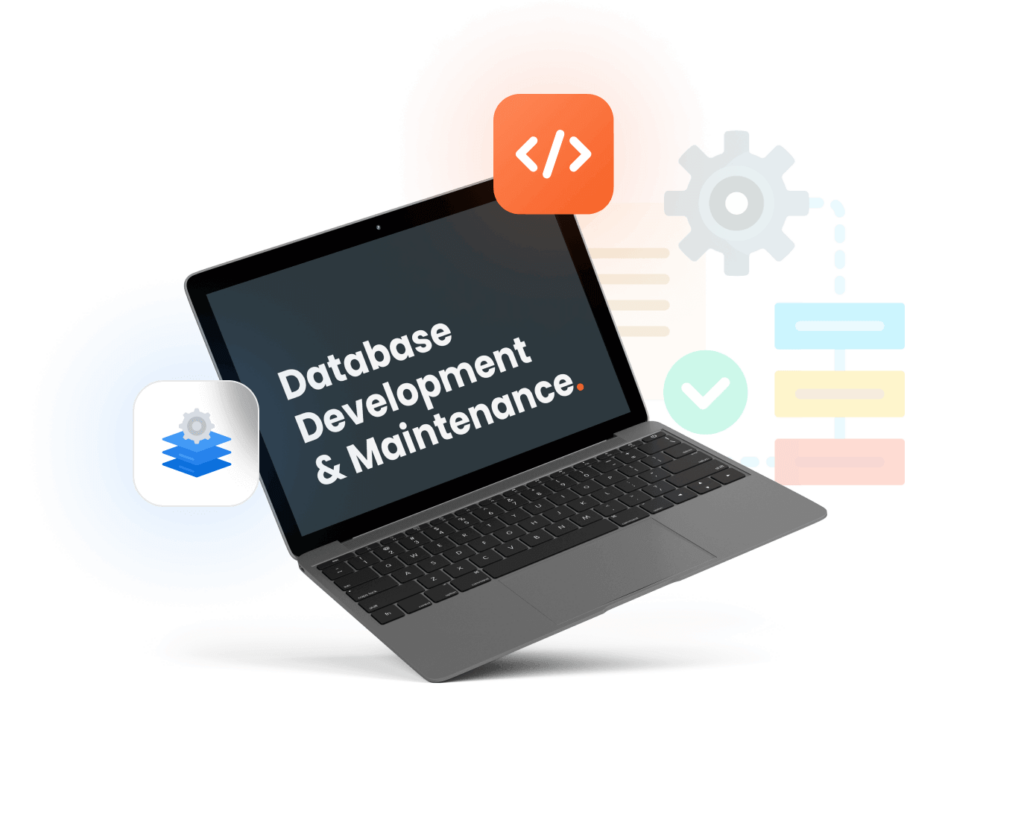> Services> Database Development and Maintenance
Database Development
Robust and Reliable Database Development Services
Database development services at SlickDevs offer the expertise to build a secure and efficient structure for easy storage and retrieval of your data.

a reflection of our clients’ success.
Our Database Development Services
-
Database Design and Development
Create robust and scalable databases with our expert design and development services. We focus on database development that optimizes performance, security, and scalability.
-
Data Migration
Our data migration services ensure smooth transitions between different databases and systems. We handle the complexities of data transfer with minimal disruption and maximum integrity, all part of our comprehensive database development strategy.
-
Database Optimization
Improve the performance of your existing databases with our optimization services. Our database development team analyzes and fine-tunes your databases to ensure they run efficiently and effectively.
-
Database Security
Protect your data with our advanced database security measures. Our database development process includes implementing encryption, access controls, and secure authentication to safeguard your databases from unauthorized access and threats.
-
Database Maintenance and Support
Maintain the reliability of your databases with our ongoing maintenance and support services. We provide regular software updates, performance monitoring, and troubleshooting to ensure your database development remains reliable and efficient.
Database Development Best Practices
Implement Proper Indexing
Utilize indexing in your database development to enhance query performance. Balance indexing with considerations for write performance and storage needs, and regularly review and adjust indexes based on query performance.
Ensure Data Integrity
Maintain data integrity in your database through constraints such as primary keys, foreign keys, and unique constraints. Implement validation rules to ensure accuracy and consistency in your databases.
Regular Backups
Adopt a robust strategy for your database including regular backups. Periodically test your backup and restore processes to ensure data can be recovered effectively in case of failure.
Implement Security Measures
Balance IoT and security in your database development with strong security measures. Use encryption, access controls, and secure authentication to protect sensitive data and update security policies regularly to address emerging threats.
Optimize Queries
Focus on writing efficient queries during database development. Avoid common pitfalls like using SELECT * or performing unnecessary joins. Apply query optimization techniques and analyze performance to improve execution times.


Database Development FAQ
Database normalization is the process of organizing data to reduce redundancy and improve data integrity. It involves dividing a database into two or more tables and defining relationships between them. By dividing a database into multiple tables and defining relationships, normalization minimizes data duplication and ensures logical data dependencies, which is crucial for custom application development.
OLTP (Online Transaction Processing) databases are optimized for transactional operations, such as insertions, updates, and deletions, and are designed for real-time, high-frequency transactions. OLAP (Online Analytical Processing) databases are optimized for complex queries and data analysis, focusing on read-heavy operations and multidimensional data structures.

